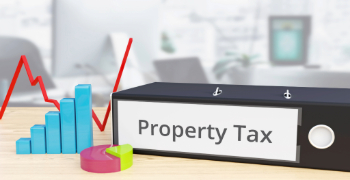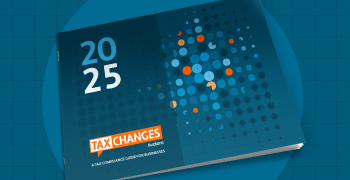Will's Whiteboard: 3 Top Reasons Businesses Get Audited for Sales Tax
Sales tax audits can be a nasty surprise for unprepared businesses, sucking away precious time and revenue. Businesses with a solid sales tax management strategy are better equipped to greet the auditor. All growing businesses should be prepared.
But what if you could see a sales tax audit coming?
You would have a much better idea whether or not your business is at risk.
While we can't give you an audit-predicting crystal ball, the latest episode of Will's Whiteboard does reveal three of the top reasons businesses get targeted for sales tax audits in California, New York and Florida, Texas, or any state that audits for sales tax.
Three reasons in three minutes: watch to learn whether your business might be a target.
Transcript
Hi. Welcome to Will’s Whiteboard. I’m Will. What are the chances that your business is going to be audited for sales and use tax this year? Ten percent? Fifty percent? Seventy five percent%? It’s really hard to pin down a percentage chance, but there are ways to tell if you’re a likely target for sales tax audits, and that’s what we’re gonna talk about today.
Okay. Audit departments are like businesses in that both are under the gun to produce revenue. That means that auditors are gonna target businesses that are at higher risk of having committed sales tax errors, so that they can get delinquent taxes as well as penalties and interests from those businesses. There are at least three criteria they use to target these businesses. Number one is audit history. If you’ve been audited and they found sales tax errors and had to charge you penalties and interest, you’re at a higher risk of being audited again.
Think of auditors like hunters. Here are the cross hairs, right. Hunters want to return to their favorite hunting grounds because the game is good there. Likewise, sales tax auditors want to return to businesses that commit a lot of sales tax errors so they can keep getting more revenue. Number two criteria, industry. Some industries are more prone to sales tax errors than others. For example, restaurants and other cash-based industries tend to have more errors. Another one is manufacturing, they deal with a lot of complex use tax law, and are therefore more error-prone.
And finally, if you have a high ratio of exempt sales to total sales, then you’re at a higher risk of an audit. This is because many businesses don’t do a great job of handling exemption certificates. Think about it. If an auditor showed up and asked you, you know, “Give me your exemption certificates from June 2008.” Would you be able to find them? Would they be accurate? For a lot of businesses the answer is no.
These are some of the key factors auditors use, but look. There are no guarantees that you won’t get audited even if you don’t fall into any three of these categories. So, the best offense here is a good defense. And, one of the best things that can help you to be prepared is sales tax automation using cloud technology. Our customers at Avalara have told us that when they implemented cloud technology for sales tax automation, their audits were clean. That means that they had less penalties and errors, that means they became less of a target for sales tax audits. Thanks very much. I’ll talk to you next time.

Your competitors live by this annual report
Trusted by professionals, this valuable resource simplifies complex topics with clarity and insight.
Stay up to date
Sign up for our free newsletter and stay up to date with the latest tax news.












